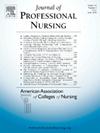护理实习生过渡性休克特征及其影响因素研究:潜在特征分析
IF 2.9
3区 医学
Q1 NURSING
引用次数: 0
摘要
背景实习护士在临床适应过程中经常出现过渡休克,降低了实习护士的工作效率,损害了实习护士的健康,阻碍了实习护士向专业护士角色的转变。然而,大多数研究忽视了护理实习生的个体特征、过渡休克水平的差异以及造成这些差异的因素。目的了解实习护士过渡性休克的潜在特征,并分析其影响因素。方法于2024年6月至7月对浙江省某中医药大学实习护士330名进行方便抽样调查。使用社会人口调查问卷、过渡冲击量表和康纳-戴维森弹性量表收集数据。采用潜在特征分析(Latent profile analysis, LPA)鉴别过渡性休克亚型,并采用多因素logistic回归分析其影响因素。结果实习护士的过渡性休克可分为高休克组、中度休克组和低休克组。结果表明,心理弹性、护理专业态度和工作场所暴力经历显著影响这些过渡冲击特征。结论基于已识别的过渡休克特征,本研究建议为护理实习生制定个性化的干预策略,以应对临床过渡挑战,从而提高实习体验的质量。本文章由计算机程序翻译,如有差异,请以英文原文为准。
A study of the profiles of transition shock and their influencing factors among nursing interns: A latent profile analysis
Background
Nursing interns often experience transition shock during clinical adaptation, which reduces their work efficiency, damages health, and hinders the transition to professional nurse role. However, most studies have overlooked the individual characteristics of nursing interns, the differences in the level of transition shock and factors causing these differences.
Purpose
To identify the latent profiles of nursing interns' transition shock and to analyze their influencing factors.
Methods
A convenience sample of 330 nursing interns from a Chinese Medical University in Zhejiang province, China, was surveyed between June and July 2024. Data were collected using a sociodemographic questionnaire, the Transition Shock Scale, and the Connor-Davidson Resilience Scale. Latent profile analysis (LPA) was conducted to identify the subtypes of transition shock, and multivariate logistic regression was used to analyze their influencing factors.
Results
Transition shock among nursing interns was categorized into three latent profiles: high shock group, moderate shock group, and low shock group. The results showed that psychological resilience, nursing professional attitudes, and workplace violence experiences significantly influenced these transition shock profiles.
Conclusion
Based on the identified transition shock profiles, this study suggests formulating personalized intervention strategies for nursing interns to address clinical transition challenges, thereby enhancing the quality of their internship experiences.
求助全文
通过发布文献求助,成功后即可免费获取论文全文。
去求助
来源期刊
CiteScore
4.80
自引率
8.00%
发文量
153
审稿时长
52 days
期刊介绍:
The Journal will accept articles that focus on baccalaureate and higher degree nursing education, educational research, policy related to education, and education and practice partnerships. Reports of original work, research, reviews, insightful descriptions, and policy papers focusing on baccalaureate and graduate nursing education will be published.

 求助内容:
求助内容: 应助结果提醒方式:
应助结果提醒方式:


